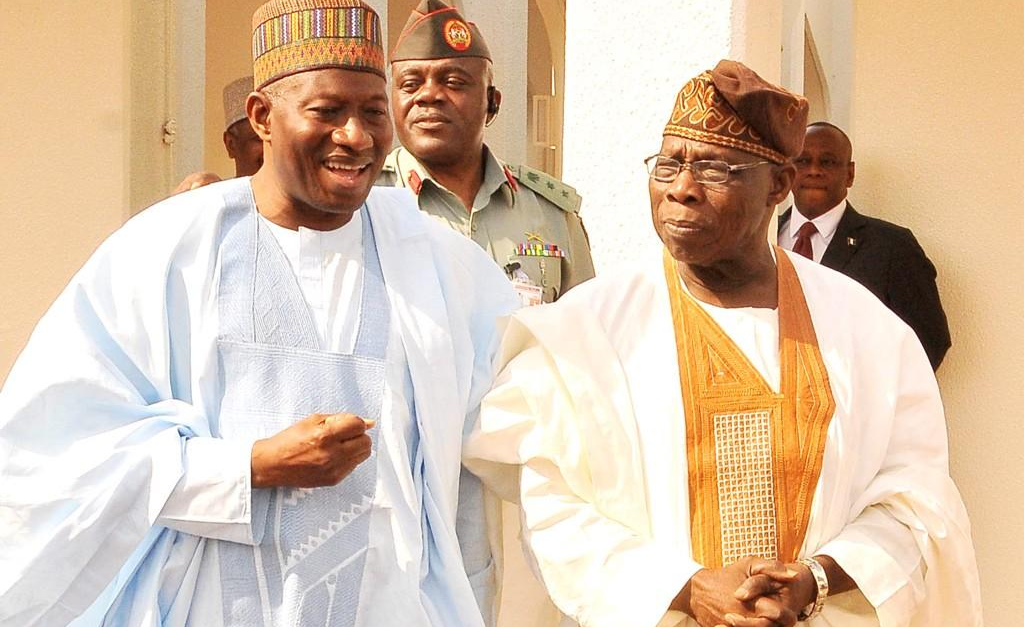For Chief Olusegun Matthew Aremu Obasanjo, crossing the bridge of life as octogenarian is not only a rare God’s grace, it is an opportunity to walk more distances on the path of legacy and global leadership.
Born on March 5, 1937, OBJ as fondly called is a former army general, who ruled Nigeria twice as a military head of state and a civilian president. Unarguably, he is the first person to have ever done this.
And of course, he will be also remembered in history for his role in Nigeria’s transition from a military state to full-fledged democratic nation.
As he celebrates his 82nd birthday today, Tuesday, March 5, Legit highlights some facts about him, which you might not be previously aware of.

1. Africa Progress Panel and Club de Madrid
Olusegun Obasanjo belongs to some of the most powerful organisations in the world. He is a member of the Africa Progress Panel (APP), a group of ten distinguished individuals who advocate at the highest levels for equitable and sustainable development in Africa.
He is also a member of Club de Madrid, an independent non-profit organisation created to promote democracy and change in the international community. Its members are over 100 former democratically elected presidents and prime ministers from more than 60 countries.
2. Traditional titles
Apart from his political affiliations, in his current home in Abeokuta, the capital city of Ogun state, he is a nobleman and holder of the chieftaincy titles of the Balogun of the Owu lineage and the Ekerin Balogun of the Egba clan of Yoruba land.
3. He has survived two major losses
In 1987, his second wife, Lynda, was ordered out of her car by armed men, and was fatally shot for failing to move quickly.
And then on October 23, 2005, he lost his wife, Stella Obasanjo, the day after she had an abdominoplasty operation in Spain.
In 2009, the doctor only known as ‘AM’ was sentenced to one year in jail for negligence in Spain and ordered to pay restitution to her son of about $176,000.
4. He won a historic election in 1999
In the 1999 elections, Obasanjo decided to run for the presidency as the candidate of the Peoples Democratic Party (PDP) and he won with 62.6% of the vote.
And May 29, 1999, the day Obasanjo took office as the first elected and civilian head of state in Nigeria after 16 years of military rule, was commemorated as Democracy Day, a public holiday in Nigeria, before it was changed to June 12 by President Muhammadu Buhari.
5. International relations
In November 2003, Obasanjo did something he was heavily criticised for. He decided to grant asylum to the deposed Liberian president, Charles Taylor, something very few could do.
On June 12, 2006 he signed the Greentree Agreement with Cameroonian President Paul Biya which formally put an end to the Bakassi peninsula border dispute.
Even though, the Nigerian Senate passed a resolution declaring that the withdrawal of Nigerian troops from the Bakassi Peninsula was illegal, Obasanjo gave the order for it to continue as planned.
6. Obasanjo farms
In a country where many are abandoning agriculture for the easy money from crude oil, Olusegun Obasanjo rose from being a national leader to one of the prominent people in agriculture business. With his Obasanjo Farms, which emanated from the popular Operation Feed the Nation (OFN) project, the former president has been able to establish a formidable farm business in the country.
7. Obasanjo’s children
Also among his children, the Obasanjo name has proven its power. His son, Dare Obasanjo, is a principal program manager for Microsoft.
His daughter Iyabo Obasanjo, was the Ogun Central senator between 2007 and 2011 and also a senior fellow at Harvard’s Advanced Leadership Initiative.
8. Imprisonment
During the dictatorship of Sani Abacha (1993–1998), Obasanjo was imprisoned for alleged participation in an aborted coup based on testimony obtained via torture. Among other charges levelled against him was that he spoke out against the human rights abuses during Abacha era.
He was released from the prison, where he became a born-again Christian, after Abacha’s sudden death in June 8, 1998.
Hear him recount the experience: “My saddest day was when I sat in front of a military panel set up by late former Head of State, Sani Abacha to try me over a phantom coup, and sentenced to death and later commuted to 30 years imprisonment.”
